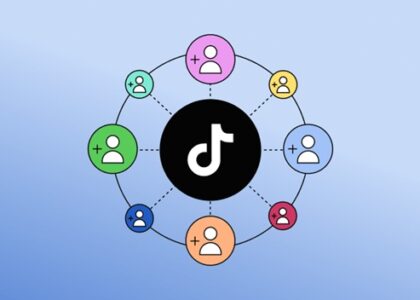Did you know that a lack of testosterone or estrogen can negatively impact your health? For instance, low levels of testosterone can lead to severe depression due to lowered motivation and concentration issues.
This Testosterone vs estrogen guide compares two primary hormones that play a vital role at nearly every stage of a person’s life.
These hormones are crucial from birth through childhood to old age. Maintaining a balance is necessary for a healthy lifestyle. Here is everything you need to know about testosterone vs estrogen.
This guide will show they are a class of hormones used by your body for various significant functions.
Testosterone vs Estrogen
Testosterone is the sex hormone that is mainly found in males. Even though testosterone may get produced in female bodies in small amounts, nearly 8 times more testosterone gets produced in men.
This is because men’s adrenal glands and testicles produce all that testosterone. Women’s ovaries are responsible for pumping tiny amounts of testosterone throughout the body.
However, this is a small amount. Otherwise, many women would unexpectedly have beards and mustaches as well.
Estrogen is popularly known as the female sex hormone. There are also 3 endogenous types of estrogen. These are estrone, Estriol, and estradiol.
These hormones get produced by fat tissue and the ovaries in females. Estradiol has a complicated relationship with male bodies.
This is because estrogen receptors in men state that the female sex hormone is also essential in maintaining healthy sperm production.
Estrogen Guide
Estrone is the weakest hormone found in postmenopausal women. This acts as a “backup” to convert powerful types of estrogen. But, Estriol gets produced through a woman’s placenta.
This comes as a high amount during pregnancy. Otherwise, it would barely be detected in the body. Some scientists believe that this is the hormone responsible for easing pre-menopausal discomfort.
Estradiol, which is the primary female hormone, is responsible for a range of crucial functions. Estradiol helps regulate the reproductive cycle, support bone health, trigger puberty, and develop secondary sex characteristics.
What Is Testosterone?
The primary male growth and development hormone is testosterone. This hormone dictates the development of secondary and primary sex characteristics.
While a baby is in the womb, the hormone helps regulate the development of the testes and penis. Then during puberty, it helps trigger the growth of the body and facial hair.
It also helps develop Adam’s apple. This changes a person’s voice by making it deeper. Testosterone is also responsible for increased muscle mass and height.
Then you also have excess sebum production, which is why many young boys struggle with acne in their teenage years.
Testosterone has also been linked to libido and arousal. Besides men, women who are menopausal can also use testosterone to boost their sexual desires.
Check out this resource for more information on testosterone replacement therapy. Testosterone plays a key part in keeping a person’s bones strong. It also helps protect against cardiovascular diseases by regulating blood circulation more effectively.
Testosterone is also closely linked to emotional and cognitive health. It leads to healthy brain tissue that improves mental performance.
Estrogen Related Problems
Low estrogen can lead to diseases that ruin the normal function of your ovaries. For instance, low estrogen can lead to Polycystic Ovarian Syndrome (PCOS). A lack of estrogen can cause irregular cycles or infertility.
This is because the hormone regulates a woman’s menstruation. If you have dysfunctional levels of estrogen, you will experience irregular periods and may skip a few months of bleeding.
Estradiol handles conception. Therefore, your body uses high levels of this hormone to release an egg. If you have low estradiol, you will have a lower chance of getting pregnant.
Low levels of estrogen can also make vaginal tissues drier. This can cause itching and pain during sex, besides lowering a person’s libido. Sex hormones also distribute fat and play a critical role in regular metabolism.
An imbalance of estrogen can easily cause obesity and weight gain. Since menopausal women have low estrogen, they store more fat around the abdominal area.
This stored fat can be dangerous. It is correlated with insulin resistance, cardiovascular diseases, and high blood pressure.
Testosterone Explained
Testosterone is correlated to many bodily functions ranging from mental to sexual. Low testosterone or hypogonadism can trigger many negative effects on your body.
For instance, low testosterone can hinder mental processes related to memory. Men with higher levels of testosterone have a sharper memory. However, testosterone levels can also impact depressive symptoms.
Especially if a person has lower than average amounts of testosterone. As testosterone levels reduce with age, men with higher testosterone will not feel their bone structure degrading.
Even if they are middle-aged. Individuals struggling with hypogonadism will have an increased risk for diseases like osteoporosis. Bone health and testosterone have a strong relationship with bone formation.
This is because bones usually go through a complex cycle of being broken down and reformed. This is done with help from a special team of cells that are sensitive to hormones. So, low testosterone can lead to your bones breaking sooner than expected before your body can build more.
Low Sperm Count
Low testosterone can reduce your ability to get an erection. This is also known as erectile dysfunction, leading to very little sperm production.
Boosting testosterone becomes necessary if you want to be sexually and mentally healthy. Otherwise, you will have trouble growing facial and body hair and can also have problems conceiving children even if you are not that old.
Regulate Hormones Correctly
Now that you know all about testosterone vs estrogen, it is time to find the right treatment. For males, testosterone is a crucial hormone that they need to live a healthy and normal life.
If you have a testosterone deficiency, it can negatively impact your emotional, physical, and mental health. Age, diet, weight, and health conditions contribute to healthy testosterone production.
If you enjoyed reading this testosterone and estrogen guide, check out some of our other posts for more information.






